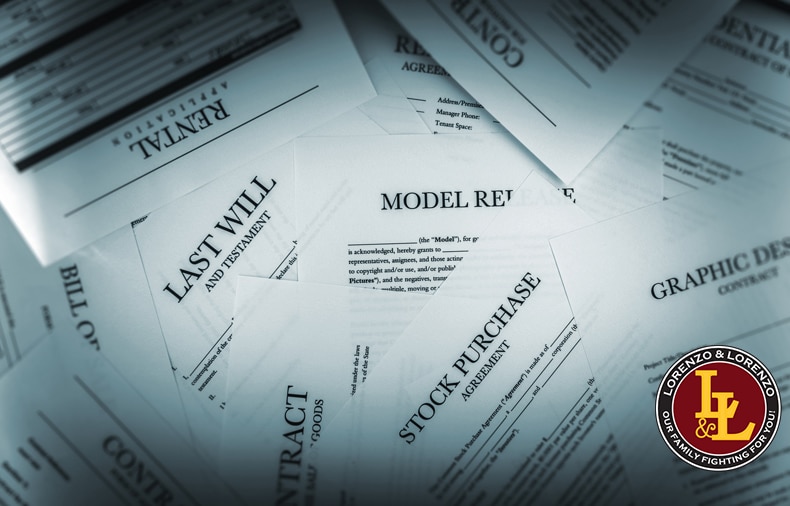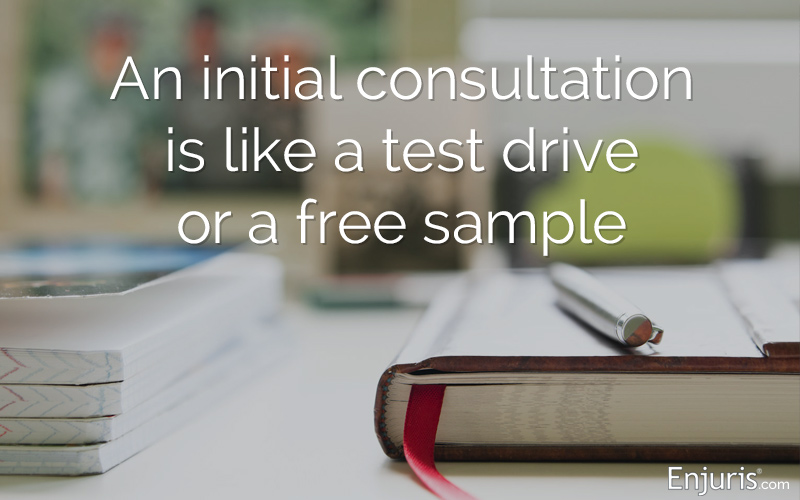
Review this checklist before your first consultation with your Florida personal injury lawyer
Life after an accident or serious injury is stressful, and your new lifestyle likely includes having to attend quite a few appointments. In addition to planning for your medical care, you’ll also want to arrange for a consultation with a personal injury or auto accident lawyer as soon as possible.
Before the meeting, you should gather a few essential documents that help the attorney assess the strength and value of your case. Having the following documents in hand when you are meeting with a lawyer for the first time helps them get a better picture of what happened during the accident and how it affects your immediate and long-term needs.
- Medical records
- Police report
- Witness information
- Accident scene photos/video
- Relevant receipts
- Insurance information
- Pay stubs
- Personal account
Organize your medical records
Medical reports are among the most essential documents that you need to bring to the attorney consultation. Even if you are still waiting on reports and bills for recent doctor visits, bring what you have so far and make a note of the date you received medical care so that you can share this information with the lawyer.
Your medical records are important because they may include written documentation of your diagnosis and symptoms. You might also have digital images and X-rays of your injuries that you can bring to the appointment.
Medical bills are also helpful for your attorney to begin calculating the financial burden that you face and the potential value of your case.
Get a copy of the police report
The police are usually called after a major car accident and part of their job is to document what happened by filing an official accident report. The official police report can be helpful to the lawyer by indicating who is at fault for the accident. They can also find pertinent details in the report—such as a detailed description of the accident scene and the identity of eyewitnesses—that can help with your case.
Collect a list of witness contacts
Witnesses can help piece together events from the accident that you might not remember and provide further proof. If witnesses gave statements to police after the accident, then get copies of these. This should be noted on the police report, but we recommend that you also jot down witnesses’ names and contact information just in case. Bring this list with you to the consultations.
Bring photos and video of the accident scene and your injuries
There might not always be enough time to snap pictures or take video after a serious accident, but these are worth a thousand words if you have them. For those who couldn’t get pictures following the incident, it may still be possible to take some of your current injuries or the damage to your property. This is especially helpful if you were in an auto accident that caused significant damage to the vehicle which, in turn, highlights the seriousness of your injuries.
Save any relevant receipts
One of the hardest parts of dealing with a personal injury is having bills coming in when your income has likely taken a big hit. Keep any receipts and bills that you receive for expenses that are associated with any part of your accident. For instance, your attorney can use an estimate or bill from the auto mechanic as proof for the amount of compensation that they request from an insurance company or the person who is responsible for the accident.
For now, keep receipts for minor expenses for things such as bandages and over-the-counter medications at home. Just keep them on hand in case you need them later on. During this first meeting, the attorney will be looking at the “big picture” details of your case, but they might request more detailed information in future meetings.
Find documents and checklists to bring with you on your initial consultations with a personal injury lawyer.
Bring your insurance information
Ideally, you will be able to get the other party’s insurance information after the accident. Your attorney might also want to see copies of your own insurance policy. They’ll use this information to determine which parts of your expenses might be covered as they begin to put together your case.
Gather info regarding lost wages
A personal injury often leads to lost work time. You might need to stop working temporarily or permanently if you have a major injury that interferes with your ability to do your job. Even with minor injuries, you’ll face having to take time off for medical appointments or to recover.
Keep a running list of any dates and times when you are not able to work your scheduled hours. You can also bring copies of paystubs and W-2 forms to prove how much money you’ve lost from missed work.
Write down a personal account
Initial meetings with an attorney are sometimes filled with so much information that you can easily forget important details. Before you meet with the lawyer, find a calm moment at home when you can write down your account of what happened. If necessary, use a voice recorder or have someone else help you make a few notes.
This account doesn’t have to be filled with details (since your other documents will cover the timeline of events), but it does help your attorney to hear about how the accident has affected your life. This helps them determine an amount to claim for pain and suffering.
Remain in contact with your lawyer
After the initial consultation, stay in contact with your lawyer so that you can obtain any other documents that they request as soon as possible. Once you finish the consultation, the attorney and you must decide whether or not to pursue your case.







